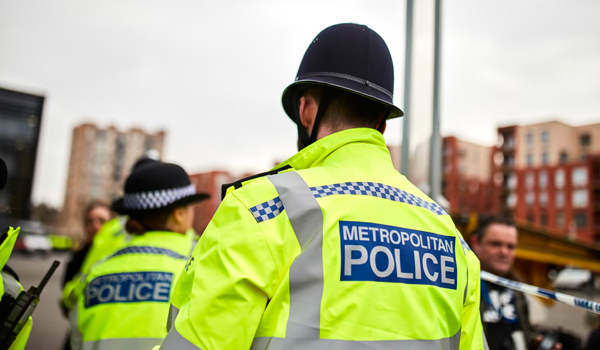MPS rolls out ‘Right Care, Right Person’ for people experiencing mental health crisis
The Metropolitan Police Service (MPS) is rolling out the ‘Right Care Right Person’ initiative to reduce the amount of mental health calls officers attend in the capital.
Right Care, Right Person is a national scheme between local police services and the NHS so mental health patients receive the right support when they call an emergency service.
The MPS said people experiencing a mental health crisis will now get “more appropriate support” as it launched the scheme across London on Wednesday (November 1).
Currently, the MPS says it is “increasingly involved” in responding to mental health crisis and other health-related issues, diverting officers from their core role of preventing and solving crime, supporting victims and bringing offenders to justice.
“This is while patients who need medical help are attended to by officers instead of expert healthcare professionals,” it said.
In London, police officers spend an average of 14.2 hours in hospital with patients when they are sectioned under the Mental Health Act while they wait for a medical professional to take over care.
In March this year alone, officers spent 10,000 hours working on sectioning patients and in 2021/22, the MPS received more than 78,000 mental health-related calls and more than 204,000 concerns for welfare calls.
The MPS has been working closely with health partners, including the NHS and social care teams across London, to ensure that they have planned for these changes. All agree this is in the best interests of patients, said the force.
The introduction of the new policy will mean officers continue to attend calls where there is an immediate risk to life – such as a person who may be at risk of taking their life, or threatening others harm – but calls will be triaged by 999 and 101 call handlers so a caller’s needs are better assessed to ensure the right service responds.
This means officers will not attend medical calls where a healthcare professional is more appropriate and will no longer attend welfare checks for people who have missed a planned health appointment, check whether they have taken their medication, or to check on a person when the health or social care agency is not working.
The MPS said it will also not look for people who have walked out of mental health facilities or left hospital unless there is a policing reason.
“This will free up police officers to attend emergency calls where a crime has been, or is being, committed so they can catch suspects more quickly, gather evidence and better support victims,” the force said.
“This will allow officers more time to focus on policing priorities for communities across London, such as knife crime, robbery and violence against women and girls.”
Assistant Commissioner Matt Twist, who leads Right Care, Right Person in the MPS, explained: “People suffering with mental health issues deserve the right response from trained medical professionals and should not feel like they are being criminalised in their time of crisis or need.
“Too often the police are called as the default response to what are healthcare issues. This leads to the criminalisation of patients, adverse outcomes and a reduction in our ability to deliver core policing responsibilities.
“Our officers are compassionate and work under extremely difficult circumstances, but they are not trained to deliver mental health care and it is important people get the support they need from those who have the right skills.
“By ensuring the right care is delivered by the right person and support services, we can reduce demand on the police and focus our efforts on tackling the crime that matters to people and making our communities safer.
“We have worked closely with our partners in the NHS, London Ambulance Service and local authorities to get ready for the implementation of this national approach.”
He added: “I want to reassure Londoners that the Met will always attend incidents where there is a threat to life, and also where crime is being committed or a risk of a breach of the peace.
“People should continue to seek support when they need it and Right Care, Right Person will support you to get the right service.”
The MPS said “extensive training” has taken place across its command-and-control (MetCC) teams who deal with 999 and 101 calls. They will be assessing incoming calls and will decide whether to deploy police or not.
MetCC officers will look to see if a crime has been committed, if someone needs medical support and/or a patient has walked out from a health facility.
“The police will no longer accept a duty of care from other agencies where core policing responsibilities are not engaged,” the force said.
The model was pioneered by Humberside Police and has proven hugely successful in reducing demand across all services, with the force seeing seven per cent of officer time freed up.


